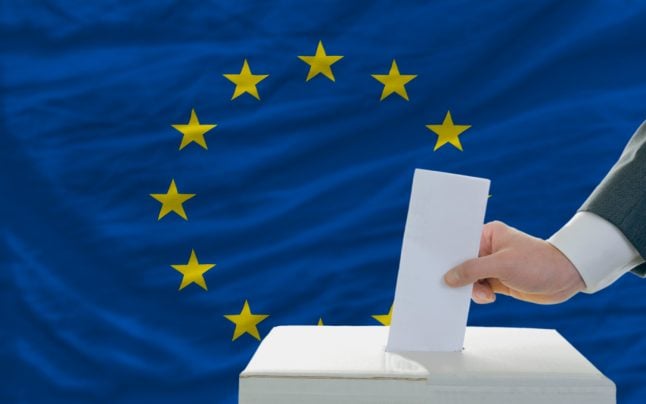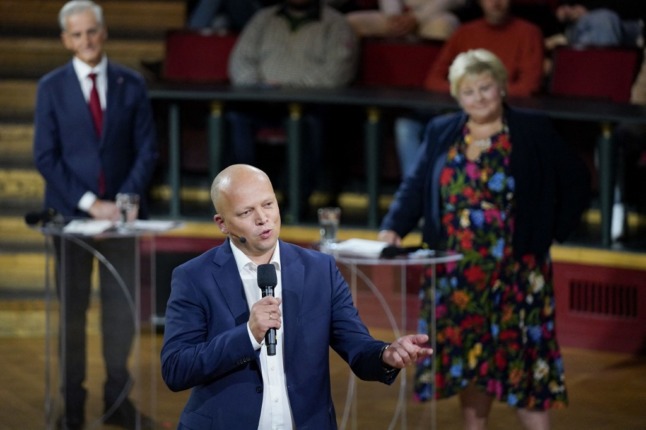What is the election?
The European election informs how the continent will act in the coming years when it comes to jobs, business, security, migration and climate change, among other topics.
SEE ALSO: 'I've seen war in Europe': Berlin veteran in push to get people voting in EU elections
You can vote for members of the European Parliament, the body which decides EU law which then applies in Germany and all the other countries in the bloc.
There are currently 751 Members of the European Parliament (MEPs) who represent the citizens of the EU’s 28 Member States. Germany will send a total of 96 MEPs to the European Parliament – the number of MEPs from each country is decided based on population size.
MEPs are elected every five years in general, direct elections. The elections this year take place between Thursday, May 23rd, and Sunday, May 26th, depending on what country you are in. Preliminary results are expected to be announced later that night.
In Germany voting day is Sunday, May 26th, and polling stations are open between 8am and 6pm. The deadline for registering to vote in Germany is May 5th.
Why is this year important?
Europe and the EU as we know it could be set to change drastically based on the European Parliament election results.
Many political commentators expect Eurosceptic parties to make big gains this time, causing a big change in the distribution of power in a future European parliament.
In the past few years Brexit and anti-European rhetoric elsewhere has polarized opinion among voters across the continent.
While Germany as a country is on the whole pro-EU, the far-right Alternative for Germany (AfD), which has made huge gains in recent years in local national elections, has spoken out against the EU.
Meanwhile, if Brits get to vote, it is likely they'll want the chance to to protest their government's handling of Brexit and to voice support for remaining in the European Union
Am I eligible to vote in Germany?
To be able to vote in Germany you must be 18-years-old, from an EU country, and resident for at least three months in Germany or another EU country. There's some more detailed information here.
Meanwhile, a new court ruling has decided that adults living in Germany who have learning disabilities will also be able to vote in this year's European elections (and future elections) for the first time. It affects more than 80,000 people.
It comes after Germany's top court earlier this year ruled that laws which bar disabled people with court-appointed caretakers supervising their affairs, as well as people convicted of crimes placed in psychiatric hospitals, as unconstitutional.
SEE ALSO: 'It's about our Europe': German business make unusual political push for EU elections
Germans with primary residence in Germany are usually already registered in the voters’ register (Wählerverzeichnis). The municipal authorities send out the voter’s notifications about four to six weeks before the election. You should have received your voter’s notification by the 21st day before the election.
If you have not received a voter’s notification or have doubts whether you are already registered, you should contact the municipality in charge. To register to vote you can fill in this form and bring it to your local election office (Bezirkswahlamt) or post it there before May 5th. Bear in mind that May 5th is a Sunday.
Am I eligible to vote in my home country?
If you are a citizen of another EU country and have not registered to vote in Germany, you are usually eligible to vote in your home country.
In some cases, you may be eligible to vote only in your home country and not in Germany. For example, in Austria, the voting age is 16 and in Greece it is 17. And a few countries (the Czech Republic, Ireland, Malta and Slovakia) limit voting rights to citizens who have moved overseas, so you may not be eligible to vote there.
Other countries may have time limits on how long you can live overseas and continue to vote in your home country. The safest thing to do if you want to vote in your home country is check with your embassy whether you're eligible.
If you are eligible and choose to vote in your home country rather than in Germany, you will need to be registered to vote with the authorities in your home country (make sure to check if you need to re-register). Also be sure to do this before the registration deadline, which differs from country to country.
You will likely be able to cast your vote by post, proxy, or at an embassy or consulate in Germany.
Again, remember that you can only vote in one country.
 Photo: DPA
Photo: DPA
What about Brits?
The UK was not scheduled to participate in EU elections because of the previously scheduled date of Brexit on March 29th. However, the UK and EU have now agreed on an extension and Britain remains a member of the bloc until October 31st. That means it's legally obligated to take part in the elections unless a deal is reached before they take place.
If the UK does take part, Brits in Germany will be able to choose whether to vote in Germany or the UK. This applies only to Brits who have lived overseas less than 15 years.
However, the UK might decide to avoid participating by instead focusing on agreeing a withdrawal deal before the election date. If this is the case, Brits in Germany will be able to vote in the German EU election only if they have citizenship in Germany or another EU country.
In order to be able to vote in the elections if the UK does take part, you need to register to vote there by May 7th, if you're not already on the electoral roll (you don't need to re-register for every election). You can do that here.
How do I cast my vote in Germany?
Votes take place in polling stations which are indicated on the voter's notification you receive. The voter's notification informs those eligible to vote that they have been entered in the voters’ register. It contains information such as:
- the date of the election
- polling hours
- the location of the polling station
- whether the polling station is accessible, and
- the option to apply for a polling card to be issued together with postal ballot documents.
Polling stations in Germany are generally open between 8am and 6pm. You should bring your ID with you (just in case) as well as your voter's notification.
How many votes do I get?
You receive just one vote – in your home country or in Germany. That means that if you're French but living in Germany and registered to vote here, you can only cast a vote for Germany.
In Germany it's known as a closed list system where the party, for example the Social Democrats, gets together and makes a list of candidates. The top candidate is the one who would be elected first.



 Please whitelist us to continue reading.
Please whitelist us to continue reading.
Member comments